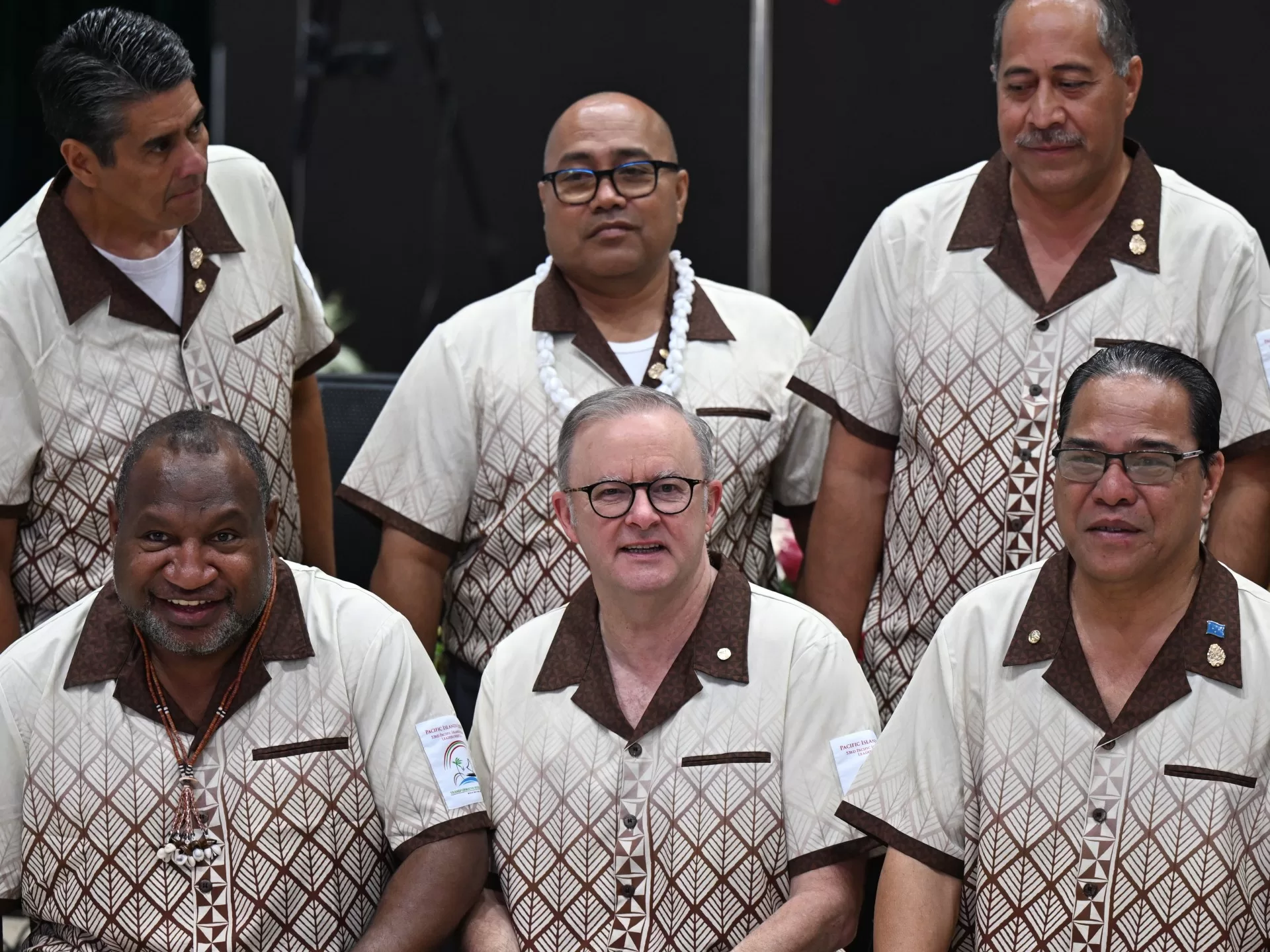The region-wide plan involves the establishment of four training centres across the Pacific with a hub in Brisbane.
Pacific Islands states have backed an Australian-funded regional policing plan to improve training and create a multinational crisis reaction force.
Australian Prime Minister Anthony Albanese said leaders endorsed the 400 million Australian dollars ($271m) proposal at their summit in Tonga on Wednesday.
Under the plan, four training centres will be established across the Pacific with a separate hub in the Australian city of Brisbane. The initiative will also create a multi-country policing force of about 200 officers to be deployed to countries in the region in the event of major events or crises.
“This demonstrates how Pacific leaders are working together to shape the future that we want to see,” said Albanese, hailing the agreement at the Pacific Islands Forum (PIF). He was flanked by the leaders of Fiji, Palau, Papua New Guinea and Tonga in a symbolic show of unity in a region where rivalry between China and the United States has been increasing.
Australia and New Zealand, both founding members of the PIF, have traditionally acted as the region’s go-to security partners, leading peacekeeping missions in Solomon Islands and training in Nauru, Fiji and Papua New Guinea.
But China, a major infrastructure lender in the region, has also been developing ties, signing a secretive security pact with Solomon Islands in 2022.
Beijing’s attempt to secure a region-wide agreement late that year ended in failure but it has been providing martial arts training and Chinese-made vehicles to police in a number of Pacific nations.
Its closest regional allies had voiced concern that the Australian policing plan was designed to box out Beijing.
While all members of the forum have endorsed the deal in principle, national leaders will have to decide how much they participate, if at all.
Mihai Sora of the Lowy Institute, a Sydney-based think tank, said Wednesday’s endorsement was a diplomatic victory for Australia and the PIF, which had appeared deeply divided on the topic.
Some Pacific leaders will hope the deal can plug gaps in their own security, while Canberra will hope it helps “close the window for China to seek a regional security agreement”, Sora told the AFP news agency.
